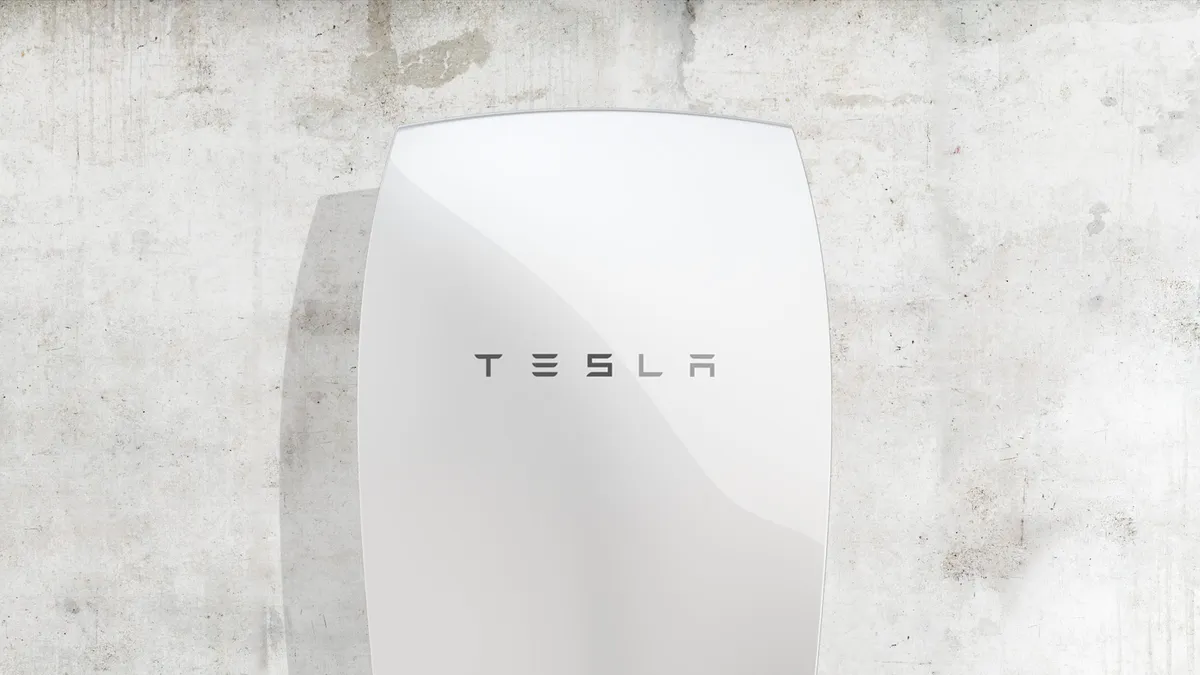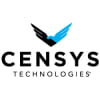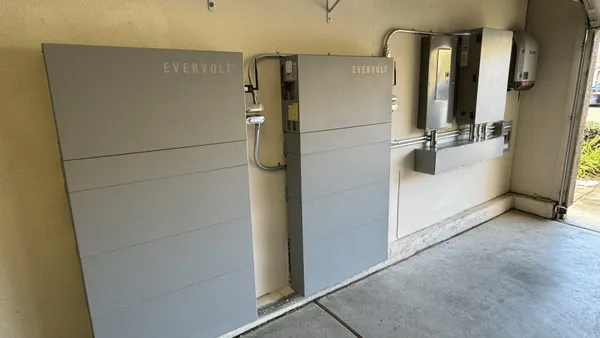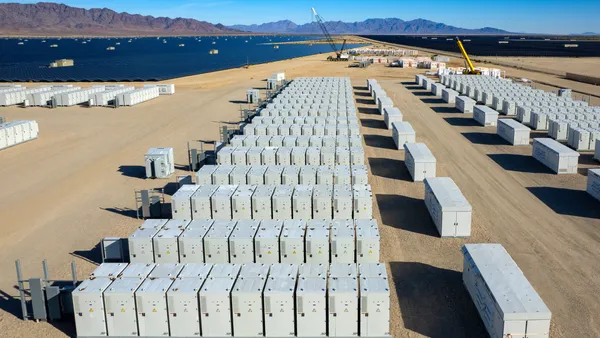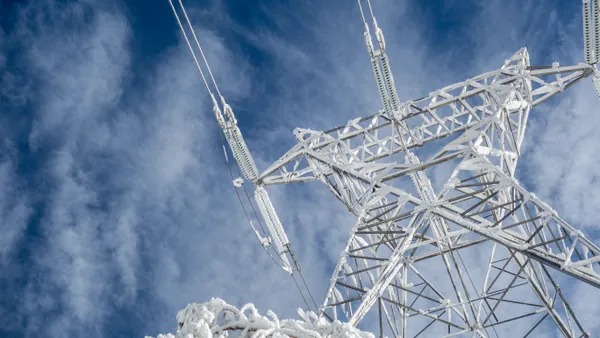Dive Brief:
- Tesla has discontinued its 10 kW Powerwall residential battery, citing difficulities wth the economics of a storage option designed for self-consumption and with a relatively short lifespan.
- But the company said it is continuing to see strong demand for the smaller, 6.4-kWh system, and in January, Tesla said a new version of the Powerwall could be on the market this summer, Greentech Media reports.
- Greentech Media confirmed Tesla's decision to pull the 10 kWh battery. The system is guaranteed for only 500 cycles, and the $3,500 wholesale price just didn't stack up against other technologies.
Dive Insight:
They key to residential storage appears to be having those batteries participate in more than one market or provide multiple services. But the Tesla 10 kWh Powerwall was designed for home backup power – it was guaranteed for just 500 cycles, as opposed to the 5,000 cycles its smaller counterpart could provide.
"We have seen enormous interest in the Daily Powerwall worldwide," Tesla said in a statement emailed to GTM. "The Daily Powerwall supports daily use applications like solar self-consumption plus backup power applications, and can offer backup simply by modifying the way it is installed in a home. Due to the interest, we have decided to focus entirely on building and deploying the 7-kilowatt-hour Daily Powerwall at this time."
But experts at the research outlet affiliated with GTM questioned the economics.
“Even some of the deep cycling lead acid batteries offer 1,000 cycles and cost less than half of the $3,500 price tag for Tesla Powerwall,” said Ravi Manghani, senior energy storage analyst at GTM Research. “For pure backup applications only providing 500 cycles, lead acid batteries or gensets are way more economical.”
There are several companies offering competing products to Tesla's Powerwall.
ElectrIQ is probably the newest on the scene. The company is offering its IQ System home battery and software, which offers customers access to battery data, appliance usage stats and an overview of connected solar resources.
The new company have already said they have 4,000 pre-orders for the systems, which include integrated software and a DC-to-AC inverter for about a $16,000 retail pricetag.



